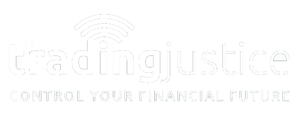There is a commitment needed by new traders, for them to be successful. They have to commit to learning, practicing and applying these strategies in the right way. If traders jump into the market, they tend to fail. If traders don’t have a strategy or plan, they tend to fail. I know that people want skin in the game, and committing to a theoretical account that they may trade someday is a hard mental commitment. But, it’s the best one. The first step to any of this is to decide that you are going to do this for yourself and that you are going to put the work into becoming great. If you can’t make that commitment, then you are just window shopping. Find another hobby.
Investing is where you get your money working for you. You save wealth not money. Invest in the different capital markets, learn to buy stocks, options, currency, commodities, businesses, real-estate. Own stuff. But, it shouldn’t just be money. You can’t save your way to prosperity. Saving is for losers, and cowards. People save money when they are ignorant of what to do with it. Investors use money to grow their wealth and take care of their legacy. Which do you want for your life?
Trading is where you actively engage a market – any market – with the intention of buying and selling the product. Your constantly putting money to work, you are trading it. You need to have a specialized skill for this endeavor. Your strategy should be based on your specific product, with a specific design on what you want to accomplish. In the market place, there are lots of products you can trade. Stocks, options, bonds, forex, futures and commodities are a few of them. Learn about the products, then build a strategy around how to trade them.
Education is an endless journey. With education, you need to decide how and what you’re going to do. In my experience as a life-long student, a teacher and a mentor, people can essentially go one of a few different ways forward.
1.They can browse various programs, sites, videos and get nowhere substantially in building a plan and a roadmap for their business.
2.They can pay individual mentors to train them how to do it correctly.
3.They can join a school, team or community to learn from others and get guided direction.
Here are the advantages and dis-advantages. If you go it alone, and try to self-educate by watching videos, tutorials, reading books, following social media posts and going the route of the internet these day – you will most likely spend a lot of time, energy and effort achieving nothing. If you do achieve, you saved money on your education costs. That’s the trade-off. You will put a lot of time and effort into trying this. Are you willing to waste a thousand hours potentially building bad habits? Do you have no seriousness for this? Or, are you just cheap? It’s an important question. If you can’t spend money, then there is something wrong with your mind-set. I grew up with a cheap father, who was always nickel and diming things. I have spent time with minimalist hippies who didn’t need anything. So, money is something I could do without. I’ve seen it my whole life. What I’ve learned, is since money isn’t important, we might as well use it for the things that are most valuable. If you’re going to do something, pay for it. If you aren’t going to do something well, don’t do it. Life is short, don’t waste it being mediocre at your hobbies and interests.
The second choice is to pay mentors. If you pay an individual trader, you might get the most bang for your buck. The challenge, is finding that mentor, qualifying that mentor, vetting that mentor, and then getting the education you need from that mentor. Most students aren’t ready to sit in a mentors office and learn the advanced techniques from a professional. You need to lay a foundation of education before you do that. Trading is a business where you have to learn a lot of stuff to eventually ignore 95% and focus on the 5% that effects your business. Not a fun idea, but necessary. It’s true of most fields. Medicine is like this. If you see a doctor, they most likely have a specialization. But, the first class they took as a student, was probably nothing to do with medicine at all. Same in the trading profession. You need to learn about the markets, how to chart, the products, account types, how to use strategies, time frames, execution, money management and countless other areas to become good at this stuff. Then eventually, you need to carve out a strategy that fits your life, your goals, your personality and then execute it seamlessly. This is the journey of a trader. And, until you’ve also experienced gains and losses and dealt with the psychological components to trading, then you have no idea what you should choose. If you have honest, direct conversations with mentors, they can guide you and shorten your learning curve.
The best choice is to join a community of traders, a team of mentors and a group of people who are all doing the same thing and will support you with the same attitude and energy that you have. This would be my advice, and the choice I would make 100 times out of a 100 after spending 11 years in the market. There are many steps in your education, and you have a big journey in front of you. You will need support and help to get there. Find the team you want to be a part of, join their community and then be a part of that.


 Christian Sisson
Christian Sisson
June 22, 2018 at 9:19 PMGreat article, Tim. High-quality basic education + a good Mentor + Network/Community. It worked for me as a Veterinarian and also as a trader.